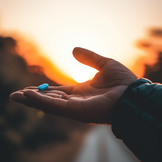How to cure erectile dysfunction permanently?
- Understanding Erectile Dysfunction (ED)
- Natural Remedies for ED
- Pelvic Floor Exercises
- Acupuncture
- Herbal Supplements
- Lifestyle Changes for ED Treatment
- Losing Weight
- Quitting Smoking
- Limiting Alcohol Consumption
- Medications for ED
- Sildenafil (Viagra)
- Tadalafil (Cialis)
- Vardenafil (Levitra)
- Alprostadil (Caverject, Edex)
- Potential Interactions and Side Effects of ED Medications
- Invasive Treatments for ED
- Vacuum Erection Devices (VED)
- Urethral Suppositories
- Penile Implants
- Testosterone Replacement Therapy for Low Testosterone Levels
- Consultation with a Doctor and Individualized Treatment Plans

Understanding Erectile Dysfunction (ED)
Erectile Dysfunction, often referred to as ED, is a condition marked by the persistent inability to achieve or maintain an erection sufficient for sexual intercourse. While occasional erectile difficulties are common, ongoing issues can cause stress, impact self-confidence, and contribute to relationship problems. ED can also be a sign of underlying health conditions that need treatment.
Natural Remedies for ED
Natural remedies for erectile dysfunction can serve as an alternative or supplement to conventional medical treatments. These include pelvic floor exercises, acupuncture, and the use of herbal supplements.
Pelvic Floor Exercises
Pelvic floor exercises, or Kegels, can help men with erectile dysfunction. By strengthening the muscles in the pelvic area, these exercises can improve blood flow to the penis, which could potentially improve erection quality and overall sexual performance.
Acupuncture
Acupuncture, a traditional Chinese medicine practice, has been used to treat various conditions, including ED. While more research is needed to confirm its effectiveness, some studies suggest that acupuncture may help improve erections by boosting blood flow.
Herbal Supplements
Herbal supplements like ginseng and yohimbine are often touted as natural remedies for ED. However, the Food and Drug Administration (FDA) does not regulate such supplements for quality or purity, so caution should be exercised when using these products due to potential side effects and interactions with other medications.
Lifestyle Changes for ED Treatment
Making certain lifestyle changes can also contribute to the management and potential resolution of ED.
These include losing weight, quitting smoking, and limiting alcohol consumption.
Losing Weight
Obesity is a risk factor for erectile dysfunction, as it can lead to or exacerbate underlying conditions that cause ED, like heart disease or diabetes. Losing weight through a healthy diet and regular exercise can improve vascular health and consequently, erectile function.
Quitting Smoking
Smoking can cause or worsen ED by damaging blood vessels and reducing blood flow to the penis. Quitting smoking can be beneficial for overall health and erectile function.
Limiting Alcohol Consumption
Excessive alcohol consumption can lead to erectile dysfunction. While moderate drinking might not cause ED, heavy drinking, especially over the long term, can.
Medications for ED
Various FDA-approved medications are available for the treatment of ED, including Sildenafil (Viagra), Tadalafil (Cialis), Vardenafil (Levitra), and Alprostadil (Caverject, Edex). These medications enhance the effects of nitric oxide, a natural chemical the body produces to relax muscles in the penis, increase blood flow, and induce an erection in response to sexual stimulation.
Sildenafil (Viagra)
Sildenafil, sold under the brand name Viagra, is a medication used to treat ED. It works by increasing blood flow to the penis during sexual activity, enabling an erection.
Tadalafil (Cialis)
Tadalafil, known by the brand name Cialis, also treats ED. Its advantage over some other ED medications is its long duration of action, which can last up to 36 hours.
Vardenafil (Levitra)
Vardenafil, or Levitra, is another drug used for ED. It is similar to Viagra and Cialis in its function but may produce fewer side effects.
Alprostadil (Caverject, Edex)
Alprostadil is another treatment option for ED. It can be administered via injection (Caverject) or through a urethral suppository (Edex). Alprostadil helps stimulate blood flow to the penis, resulting in an erection.
Potential Interactions and Side Effects of ED Medications
While these medications are generally safe, they come with potential side effects such as headaches, facial flushing, upset stomach, and visual disturbances. They can also interact negatively with certain other medications, including nitrates used for heart disease. Always consult with a healthcare provider before starting any new medication.
Invasive Treatments for ED
When other treatments are ineffective, more invasive options may be considered. These include vacuum erection devices (VED), urethral suppositories, and penile implants.
Vacuum Erection Devices (VED)
A VED is a non-invasive device that uses a vacuum to draw blood into the penis, inducing an erection. A band is then placed around the base of the penis to maintain the erection.
Urethral Suppositories
Urethral suppositories, such as MUSE, involve the placement of a tiny alprostadil suppository inside the penile urethra, inducing an erection by enhancing blood flow.
Penile Implants
For men who have not found success with other treatments, penile implants offer a permanent solution to erectile dysfunction. The surgery involves placing devices into both sides of the penis, allowing men to control the timing and duration of their erections.
Testosterone Replacement Therapy for Low Testosterone Levels
If a man's ED is caused by low testosterone levels, testosterone replacement therapy may be an option. However, it's important to note that testosterone therapy is only effective for ED if low testosterone is the source of the problem.
Consultation with a Doctor and Individualized Treatment Plans
Given the range of potential causes and treatments for ED, it's crucial to consult with a healthcare provider for a comprehensive evaluation. They can help create an individualized treatment plan that takes into account personal health history, current medications, lifestyle, and preferences.
In conclusion, it's important to remember that while erectile dysfunction can be distressing, it is also treatable. There are a variety of options ranging from lifestyle modifications to medications and surgeries, and most men can find a treatment that works for them. While some treatments may provide faster relief, the best approach is typically a holistic one that addresses the underlying health and lifestyle factors contributing to the condition. Don't hesitate to seek help – erectile dysfunction is a common problem, and help is available.



